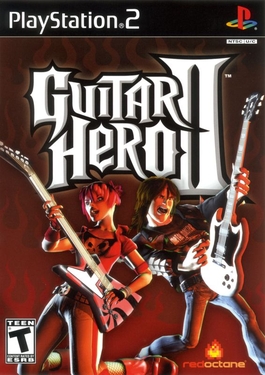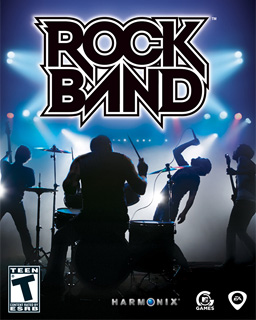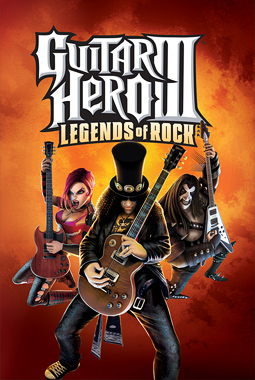Related Research Articles

A game controller, gaming controller, or simply controller, is an input device or input/output device used with video games or entertainment systems to provide input to a video game. Input devices that have been classified as game controllers include keyboards, mice, gamepads, and joysticks, as well as special purpose devices, such as steering wheels for driving games and light guns for shooting games. Controllers designs have evolved to include directional pads, multiple buttons, analog sticks, joysticks, motion detection, touch screens and a plethora of other features.
In computing, DirectInput is a legacy Microsoft API for collecting input from a computer user, via input devices such as the mouse, keyboard, or a gamepad. It also provides a system for action mapping, which allows the user to assign specific actions within a game to the buttons and axes of the input devices. Additionally it handles haptic feedback (input/output) devices. Microsoft introduced a new input library called XInput specifically for the Xbox 360 controller.

RedOctane, Inc. was an American electronic entertainment company best known for producing the Guitar Hero series, beginning in November 2005. RedOctane became a wholly owned subsidiary of Activision in 2006. In February 2010, Activision closed the RedOctane division.
A video game accessory is a distinct piece of hardware that is required to use a video game console, or one that enriches the video game's play experience. Essentially, video game accessories are everything except the console itself, such as controllers, memory, power adapters (AC), and audio/visual cables. Most video game consoles come with the accessories required to play games out of the box : one A/V cable, one AC cable, and a controller. Memory is usually the most required accessory outside of these, as game data cannot be saved to compact discs. The companies that manufacture video game consoles also make these accessories for replacement purposes as well as improving the overall experience. There is an entire industry of companies that create accessories for consoles as well, called third-party companies. The prices are often lower than those made by the maker of the console (first-party). This is usually achieved by avoiding licensing or using cheaper materials. For the mobile systems like the PlayStation Portable and Game Boy iterations, there are many accessories to make them more usable in mobile environments, such as mobile chargers, lighting to improve visibility, and cases to both protect and help organize the collection of system peripherals to. Newer accessories include many home-made things like mod chips to bypass manufacturing protection or homemade software.

Guitar Hero II is a music rhythm video game developed by Harmonix and published by RedOctane for the PlayStation 2 and Activision for the Xbox 360. It is the second main installment in the Guitar Hero series and is the sequel to 2005's Guitar Hero. It was first released for the PlayStation 2 in November 2006, and then for the Xbox 360 in April 2007, with additional content not originally in the PlayStation 2 version.
Windows Media Center Extenders are devices that are configured to connect over a computer network to a computer running Microsoft Windows XP Media Center Edition, Windows Vista Home Premium/Ultimate, Windows 7 Home Premium, or Windows 8 with a Pro pack to stream the computer's media center functions to the Extender device. This allows use of the Media Center and its features on a television receiver or other electronic visual display.

The Sixaxis is a wireless gamepad produced by Sony for their PlayStation 3 video game console. It was introduced alongside the PlayStation 3 in 2006 and remained the console's official controller until 2008. The Sixaxis was succeeded by the DualShock 3, an updated version of the controller that, like the DualShock and DualShock 2 controllers, incorporates haptic technology – also known as force feedback. A Sixaxis controller can also be used with PSP Go and the PlayStation TV via Bluetooth after registering the controller on a PlayStation 3 console.

A guitar controller is a video game controller designed to simulate the playing of the guitar, a string musical instrument. Guitar controllers are often used for music games such as UmJammer Lammy: NOW!, GuitarFreaks, Guitar Hero, and the Rock Band series. The controllers are played by holding down a colored fret button that matches a colored, on-screen note, while pressing the strum bar as the note passes through the target. The controllers also feature a whammy bar, which is used to bend notes and collect each game's equivalent of bonus energy. Different games and models of controllers have introduced additional features, such as effects switches, additional fret buttons, and fret touch pads. The fret buttons are colored usually in the order of green, red, yellow, blue, and orange.
Guitar Hero is a series of music rhythm game video games first released in 2005, in which players use a guitar-shaped game controller to simulate playing primarily lead, bass, and rhythm guitar across numerous songs. Players match notes that scroll on-screen to colored fret buttons on the controller, strumming the controller in time to the music in order to score points, and keep the virtual audience excited. The games attempt to mimic many features of playing a real guitar, including the use of fast-fingering hammer-ons and pull-offs and the use of the whammy bar to alter the pitch of notes. Most games support single player modes, typically a Career mode to play through all the songs in the game, as well as competitive and cooperative multiplayer modes. With the introduction of Guitar Hero World Tour in 2008, the game includes support for a four-player band including vocals and drums. The series initially used mostly cover versions of songs created by WaveGroup Sound, but most recent titles feature soundtracks that are fully master recordings, and in some cases, special re-recordings, of the songs. Later titles in the series feature support for downloadable content in the form of new songs.

Rock Band is a music video game developed by Harmonix, published by MTV Games and distributed by Electronic Arts. It is the first title in the Rock Band series. The Xbox 360 and PlayStation 3 versions were released in North America on November 20, 2007, while the PlayStation 2 version was released on December 18, 2007 and the Wii version on June 22, 2008. Harmonix previously developed the first two games in the Guitar Hero series, which popularized gameplay of rock music with guitar-shaped controllers. After development of the series was shifted to Neversoft, Harmonix conceived Rock Band as a new title that would offer multi-instrument gameplay.

The Xbox 360 controller is the primary game controller for Microsoft's Xbox 360 home video game console that was introduced at E3 2005. The Xbox 360 controller comes in both wired and wireless versions. The Xbox controller is not compatible with the Xbox 360. The wired and wireless versions are also compatible with Microsoft PC operating systems, such as Windows XP, Windows Vista, Windows 7, Windows 8, Windows 10, and Windows 11.

Guitar Hero III: Legends of Rock is a music rhythm video game developed by Neversoft and published by Activision. It is the third main installment in the Guitar Hero series, following Guitar Hero II. It is the first game in the series to be developed by Neversoft after Activision's acquisition of RedOctane and MTV Games' purchase of Harmonix, the previous development studio for the series. The game was released worldwide for the PlayStation 2, PlayStation 3, Wii and Xbox 360 in October 2007, with Budcat Creations assisting Neversoft on developing the PlayStation 2 port and Vicarious Visions solely developing on the Wii port respectively. Aspyr published the Microsoft Windows and Mac OS X versions of the game, releasing them later in 2007.

Guitar Hero World Tour is a 2008 music rhythm video game developed by Neversoft and published by Activision. It is the fourth main installment in the Guitar Hero series. The game was launched in North America in October 2008 for the PlayStation 2, PlayStation 3, Wii, and Xbox 360 consoles, and a month later for Europe and Australia. A version of World Tour for Microsoft Windows and Mac OS X was later released by Aspyr.

Guitar Hero: Aerosmith is a 2008 music rhythm video game developed by Neversoft and published by Activision. It was released on the PlayStation 3, Wii and Xbox 360 consoles, with Budcat Creations solely developing the PlayStation 2 port, Vicarious Visions solely developing the Wii port, and Aspyr solely publishing the Microsoft Windows and Mac OS X ports. The game was released on June 29, 2008 in North America, on July 27, 2008 in Europe, on August 6, 2008 in Australia and October 9, 2008 in Japan. Guitar Hero: Aerosmith sold as both a bundle with a specially designed guitar controller as well as a game-only package.
Rock Band 2 is a 2008 music video game developed by Harmonix, published by MTV Games and distributed by Electronic Arts. It is the sequel to Rock Band and is the second title in the series. The game allows up to four players to simulate the performance of popular songs by playing with controllers modeled after musical instruments. Players can play the lead guitar, bass guitar, and drums parts to songs with "instrument controllers", as well as sing through a USB microphone. Players are scored on their ability to match scrolling musical "notes" while playing instruments, or by their ability to match the singer's pitch on vocals.
Rhythm game accessories are often required to play rhythm games available for various consoles, such as the PlayStation 2, PlayStation 3, Wii, and Xbox 360. These include dance pads, guitar controllers, drum controllers, microphones and turntable controllers. With the exception of microphones, these controllers can generally be used to control any game, but have limited inputs, making them impractical for most games.
References
- ↑ Bergfeld, Carlos (2007-11-07). "Wireless 360 Guitar Hero III Controller Compatible with PC Version". Shacknews . Retrieved 2008-01-31.
- ↑ "The "X" Difference". GameFAQs. 2001-11-27. Retrieved 2008-07-12.
- ↑ McLain, Alex. "Xbox 360 Accessories - Controller Evolved". Xbox.com. Archived from the original on 2008-06-16. Retrieved 2008-07-12.
- ↑ Kollar, Philip (2007-04-02). "Guitar Hero 2 Manual Confirms Effects Pedal". 1up.com . Retrieved 2008-07-12.
- ↑ "Guitar Hero 3 for PC". 2008-01-02. Retrieved 2008-07-12.